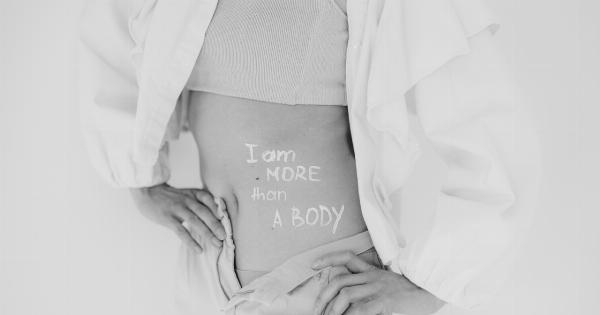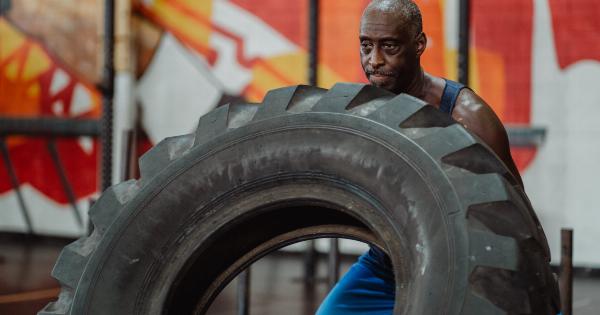Posture is often thought to be a reflection of one’s confidence and self-esteem. How we carry ourselves can make a significant impact on how we are perceived by others and, more importantly, how we feel about ourselves.
In this article, we will delve deeper into the relationship between posture and confidence, exploring both the psychological and physiological aspects of this connection.
The role of body language
Body language plays a vital role in communication and is an essential component of how we express ourselves. Our posture, gestures, and facial expressions convey messages to others, often without us even realizing it.
Adopting an upright and confident posture can send positive signals to those around us, indicating self-assurance and authority.
Psychological effects of good posture
It is well-established that our physicality can influence our psychology.
Various studies have shown that adopting a powerful posture can lead to increased levels of testosterone, the hormone associated with dominance and confidence, and reduced levels of cortisol, the stress hormone.
When we stand tall with our shoulders back, we not only appear more confident but also feel more authoritative and in control.
This improved sense of self can positively impact our overall mood, motivation, and productivity, leading to greater success in various areas of life, including professional endeavors and social interactions.
The impact of poor posture on confidence
Conversely, having poor posture can have detrimental effects on our confidence levels. Slouching, rounded shoulders, and a bent spine can not only make us appear less confident but also make us feel that way.
Research has shown that individuals with poor posture are more likely to experience negative emotions, such as anxiety and depression, and have reduced self-esteem.
Poor posture can also contribute to physical discomfort and pain, further diminishing our confidence.
When we are constantly hunched or slouched over, it can lead to muscle imbalances, strained ligaments, and increased tension in the neck, shoulders, and back. These physical ailments can distract us from focusing on the task at hand and make us acutely aware of our discomfort, undermining our confidence.
The mind-body connection
While the impact of posture on confidence is often discussed in terms of its psychological effects, it is important to recognize the mind-body connection that exists.
Our physical and mental states are interconnected, and changes in one can influence the other.
Research has shown that intentionally improving our posture can have a positive impact on our mental well-being.
Just as adopting a confident posture can boost our mood, consciously correcting our posture and standing tall can enhance our self-perception and increase our confidence levels. By aligning our body with a posture of confidence, we can reinforce positive thoughts and emotions, helping us to project self-assurance to the world.
The importance of awareness and practice
Improving posture and its subsequent effect on confidence requires awareness and practice.
Many of us have developed poor posture habits over time, whether due to sitting for extended periods, using electronic devices, or engaging in activities that promote slouching.
Building awareness of our posture throughout the day is the first step towards making positive changes. Regularly checking in with ourselves and consciously adjusting our alignment can help us break old habits and develop new ones.
Combining this with targeted exercises and stretches to strengthen the core and other postural muscles can further enhance our ability to maintain good posture effortlessly.
Posture-enhancing techniques
There are several techniques and practices that can help promote better posture and, consequently, bolster confidence:.
1. Ergonomic workstations:
Ensuring that our workstations are set up ergonomically can encourage proper posture. This includes having an adjustable chair, a supportive desk, and positioning the monitor at eye level.
2. Regular breaks and movement:
Prolonged sitting can have detrimental effects on posture. Taking regular breaks to stand up, stretch, and move around can help alleviate tension and maintain good posture.
3. Posture-correcting devices:
There are various devices available, such as posture braces or wearable gadgets, that can help us maintain proper alignment throughout the day. These can be particularly useful during the initial stages of posture correction.
4. Mindfulness and body scan exercises:
Practicing mindfulness techniques and body scan exercises can increase our awareness of our posture and help us make necessary adjustments.
Regular meditation can also promote overall well-being and reduce stress, which may indirectly impact posture and confidence.
5. Strength training and flexibility exercises:
Exercises that target the core, back, and postural muscles can improve overall strength and flexibility, making it easier to maintain good posture naturally.
The long-term benefits
Incorporating practices to improve posture and confidence can have numerous long-term benefits.
Not only can it enhance our physical health by reducing the risk of musculoskeletal issues and discomfort, but it can also positively impact our mental well-being.
Confident posture can improve our self-image, increase our assertiveness, and enhance our interpersonal relationships. It can help us approach challenges with a more positive mindset, enabling us to overcome obstacles and achieve our goals.
By recognizing the relationship between posture and confidence and making a conscious effort to improve our physical alignment, we have the opportunity to transform not only how others perceive us but also how we perceive ourselves.




























